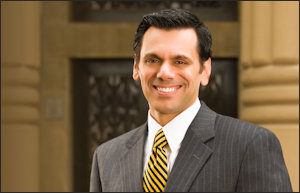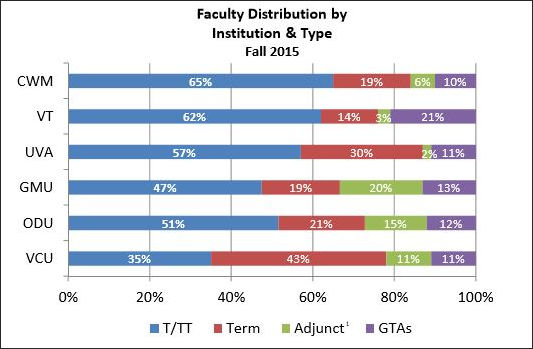
VCU President Michael Rao: Hard choices ahead
Last month I wrote how Virginia Commonwealth University was eyeing an undergraduate tuition increase of 3% to 5% to make up for cuts in state support. Well, it appears that VCU is now looking at the upper bound of that estimate. VCU students would need to pay about 5.3% more in tuition and fees next year to close an estimated $19.1 million funding gap, Karol Kain Gray, VCU’s vice president for finance and budget, said at Board of Visitors budget workshop yesterday, according to the Richmond Times-Dispatch.
Clearly, VCU is between a rock and a hard place. As I noted in March, VCU already has the third-highest tuition of any public, four-year institution in the state. In contrast to the University of Virginia and the College of William & Mary, which are perceived as elite institutions with ample leeway to increase tuition, the VCU brand might not be strong enough to push through higher charges without suffering a drop in applications.
“Being new here, I can tell you we are lean and mean,” Gray said. But if the board members want VCU to be as competitive as its peer institutions, she added, they need to fund a tuition increase. In the latest U.S. News & World-Report ranking of the “best” colleges and universities, VCU ranks 164th nationally among all higher-ed institutions and 87th among public institutions.

The board discussion brought to light one of VCU’s big problems in the consumer-perception game: the low percentage of tenured and tenure-track faculty.
The fact that the university has fewer tenured and tenure-track professors is a sign that VCU is operating at a “lower” level than its peer institutions like the University of Virginia, Virginia Tech and the College of William & Mary, Gray said. Adjunct and non-tenured professors tend to not cost as much to employ.
Only 35 percent of VCU’s professors are tenured or tenure-track, compared with 57 percent at U.Va., 62 percent at Virginia Tech and 65 percent at the College of William & Mary.
This brings out a weakness in the VCU business model that had not been readily apparent before. VCU charges a high tuition (by the standards of a public Virginia university) even though its academic cost structure, and by extension the relative prestige of its faculty, is low.
As we’ve discussed elsewhere on Bacon’s Rebellion, the percentage of tenured and tenure-track faculty may be overrated as a metric of educational quality. Speaking of higher-ed generally, tenured faculty members enjoy sweet deals that allow them to teach less and and pursue more research, writing and outside income-generating opportunities. So, a low percentage of tenured faculty does not necessarily imply that VCU students are getting a worse education. But when it comes to pushing through big tuition increases, what matters is perception.
In the U.S. News & World-Report rankings methodology, “undergraduate academic reputation” counts for 22.5% of the score. Reputation is derived from the results of two surveys: an “academic peer assessment,” which counts for 2/3 of the 22.5%, and a high school counselor survey, which counts for 1/3. I am making an assumption here, but I expect that the academics who respond to the US News & World-Report survey base their responses on the scholarly reputations of their peers — books, articles, papers published, conferences attended, etc. — and not their prowess as teachers. If I’m right about that, VCU, with only 35% of its faculty on the tenure track, probably does not score well in this category. (Unfortunately, U.S. News & World-Report does not publish this number, so I cannot say for certain.)
As high school graduates weigh cost, academic reputation and educational value, an aggressive tuition increase at VCU can have only a dampening effect on applications. The 2015 fall acceptance rate at VCU was 72%. Declining applications can set into effect scoring dynamics that could impact the university’s reputation, thus driving down rankings and starting a vicious cycle.
“Student selectivity” counts for 12.5% of the U.S. News & World-Report ranking. One-tenth of that 12.5% is determined by the acceptance rate. A lower acceptance rate is considered more prestigious, a higher rate less prestigious. Assuming VCU accepts the same number of students to fill the same number of slots, a decline in applications would push the acceptance rate even higher. Likewise, as the university becomes less selective in accepting students, it tends to accept students with lower SAT scores. Standardized test scores count for 65% of the student selectivity component.
A 5.3% tuition increase can get VCU over the fiscal hump next year. But the board will need to pay close attention to the market consequences. Will fewer students apply to VCU? Will VCU become less selective in whom it accepts? Will average SAT scores decline? Will its U.S. News & World-Report rankings fall? A big tuition hike creates a big risk.


